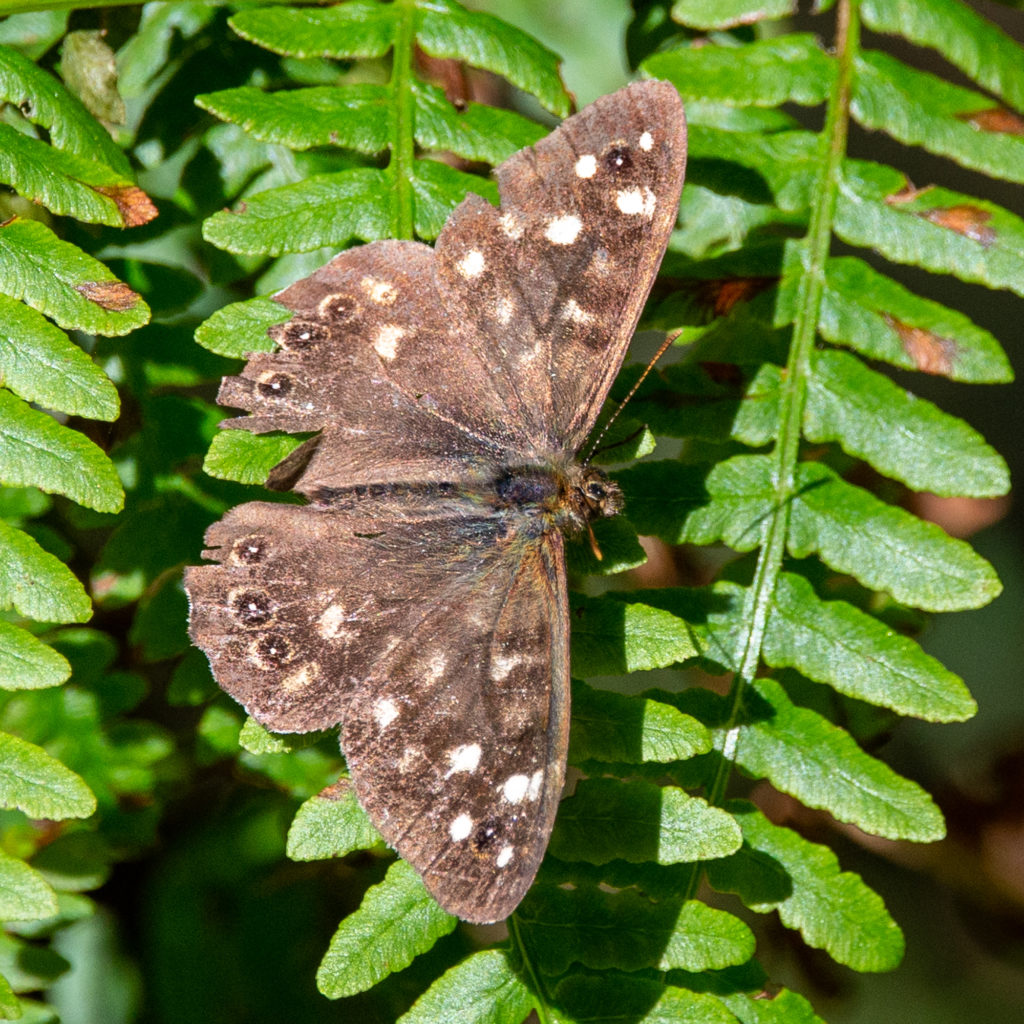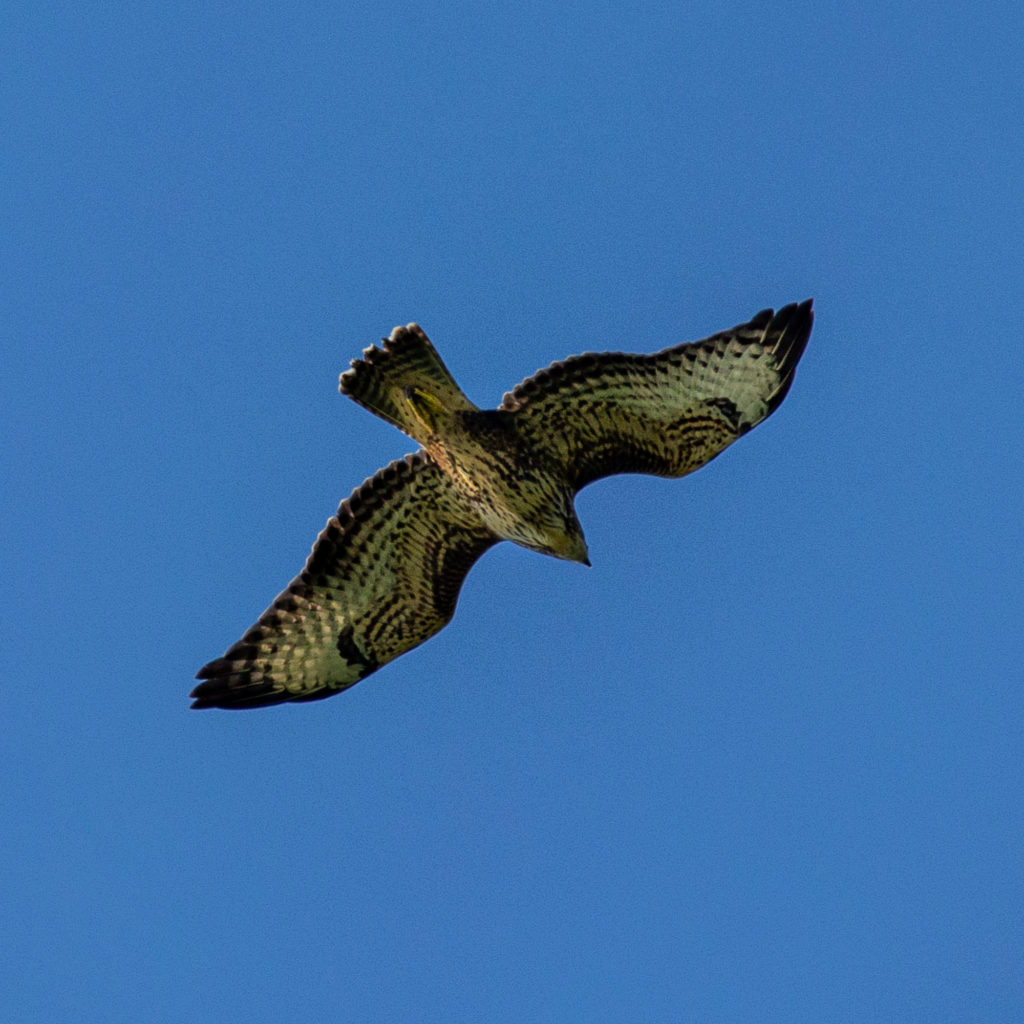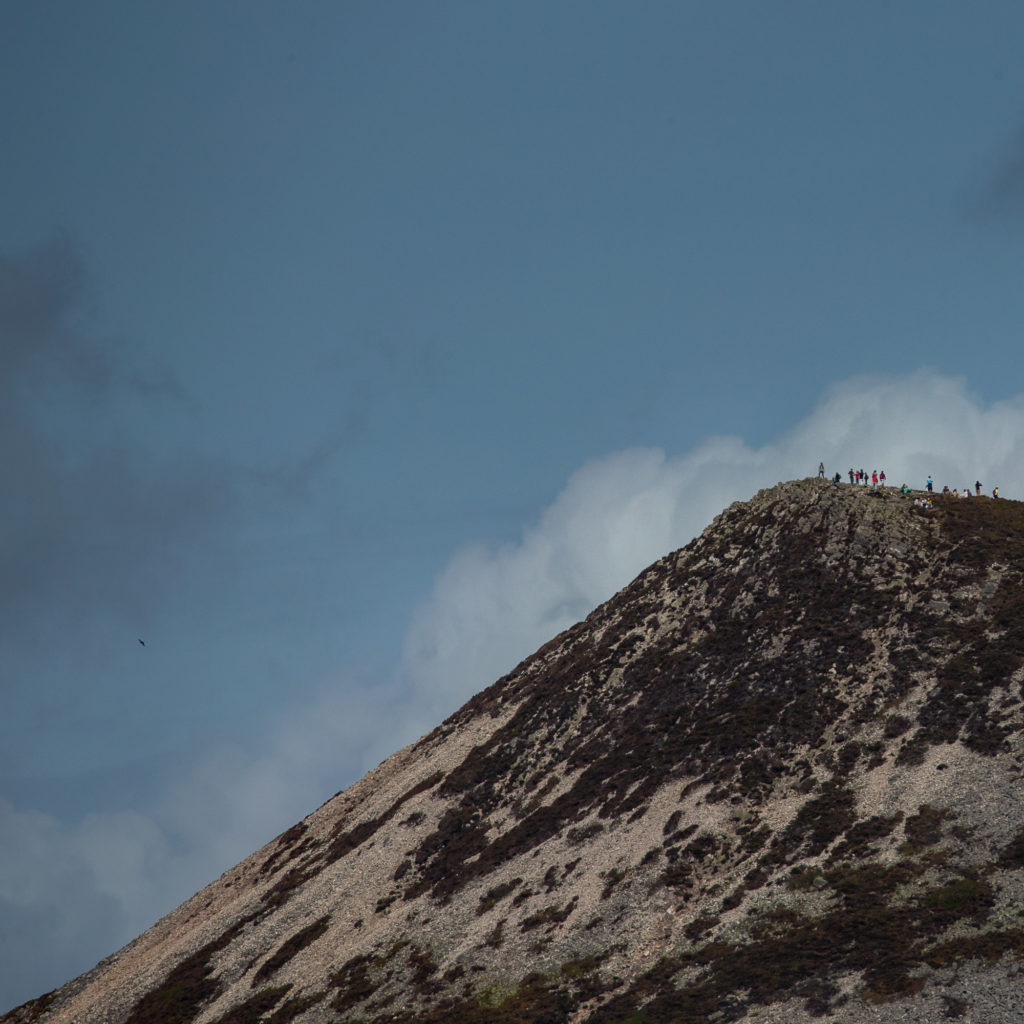It seems that the easiest way to add twists to your tale is to have other people retell it. This was my learning from what Manchán Magan has written up of an ongoing experiment by artist Alannah Robins in the Irish Times Magazine today.
Speckled Wood Butterfly, Buzzard and Sugar Loaf People
Earlier this year, she asked a storyteller to recite a traditional story to one other person who repeated it to another who passed it on to another. The story started in the Arran Islands to the west of Ireland and is today circulating in Latvia after hundreds of retellings.
Each telling or retelling is being documented on Zoom. You can imagine what has happened, can’t you? Perhaps you can’t imagine the details. How the translation to Welsh turned oars to spades for example.
Thirty five years ago a man walked into a classroom in Southwest Houston and said ‘teach you I’m here listening to about’ or some similar jumble of words. He continued with another couple of jumbled sentences to the bemusement of me and my colleagues who thought we’d of been sent to a training course on supervisory management. This teacher was a specialist in ‘active listening’ and he spent the day teaching us how he thought we should listen. He did this in part by confusing our hearing.
One of the classroom exercises was a three-step Chinese whispers experiment in which we always failed to get the correct details through two retellings. On one occasion, one of one of my more controlling colleagues interjected angrily. He said that he’d never said what was being re-told by the person he never said it to. And of course of this was in a controlled teaching environment which demonstrated to me that our group needed help.
I’ve been interested in memory in an amateur away for years. I’ve read of studies that indicate that every recall of a memory damages it. That is to say, your brain records one thing but it changes when you retrieve it. It morphs again as you tell it and yet another version is parsed while being returned to your memory banks. A key issue is that it’s the details that are being eroded. I like to try to focus on the essence of stories and the principles behind facts.
I have known forever that I cannot recall details with fidelity. I have always known that I would be a terrible witness to an accident or a crime if I was called to testify in court. I have known for forty years that I might have been a bad expert witness in my science because I find it hard not to see, or prevent myself seeing, two or more sides of an argument. Infinity came up the other day and I said there was no such thing. I can’t prove it but I can still add one. And at work, I wrote a lot of notes to myself as aides-memoires.
I’ve been told that my opinion is and consistent and therefore arguably unreliable. I tend to agree. My opinions change with new information. For example, as a child, I was told I had to believe in God. I was educated with that belief as a central theme. Most everyone around me shared such a belief. It’s a great story. Then I had a conversation with one of my friends who lives across the road from me. He was at a Protestant school I was being educated by Catholics and he said that my teachers had got some of the story wrong. Years later I met and worked with some world-class engineers, a couple of whom were Creationists. They were people who believed that the imprints beside the 100 million year old footprints of dinosaurs were footprints made by humans. They even asked a geologist colleague to write about this for their Sunday School class.
I’m not at all surprised that Allanah Robins story has morphed as it travel across Europe, changing language more often than it changes nation. I’d love to be going to the Clifden Arts Festival next week to hear more but Clifden is not safely accessible to us at this point in this pandemic. It would be irresponsible given the rising infection rates where we live.
I did spend several hours today with three grandchildren, very socially distant as we walked across hills in Wicklow. You might presume my comments about infinity and divinity above are facetious or specious but having spent the time with three kids today, I was reminded that we should take care what and how we tell young children.
And each of them said, "How wise we are! Though the sky be dark, and the voyage be long, Yet we never can think we were rash or wrong, While round in our Sieve we spin!"
The Jumblies by Edward Lear




Leave a Reply